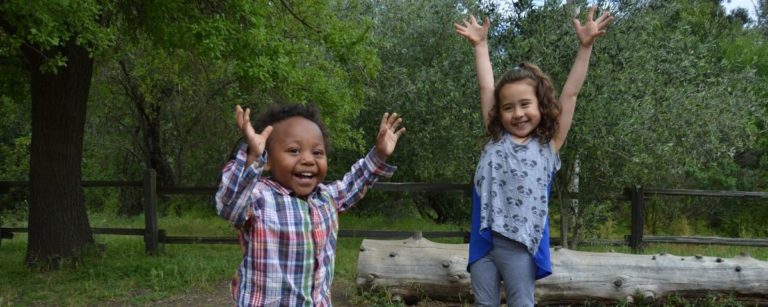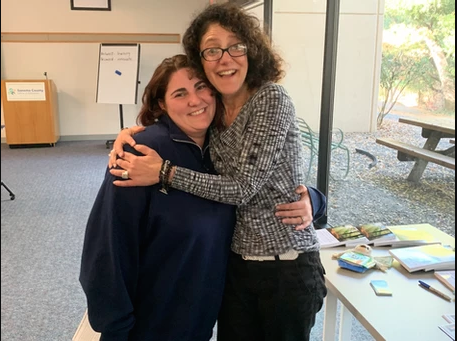What Lying Might Say About My Child’s Attachment
By Carey A. Gil, LCSW
As a parent, nothing triggers me more than lying. How ironic, given how many times a day I do it myself! Do I mind if you’re late to our meeting? “No problem”. Dentist wants to know if I’m flossing as she recommended last visit? “Um yes of course”.
Taking Lying Personally as a Parent
As parents we often take our children’s lying personally. The most common interpretation is “they don’t respect me” or “they don’t care about me”. Certainly, trust plays a big role in our choice to be honest. If I feel emotionally and physically safe to say what I really think and feel, I am more motivated to tell the whole truth. And much of that depends on how I THINK the other person will receive the truth, which could be based on their past reactions or my fears (whether grounded in reality or not).
Attachment and Lying
“But we’ve worked so hard on building a relationship! Did we make any progress at all if they still can’t be honest with me after all of this time?” Attachment, at its fundamental core, is our felt safety and perceived connection in a relationship with someone else. It’s a tricky concept because the more you have, the more you have to lose, especially if you remember what it’s like NOT to have it. Rather than looking at it as a sign of detachment from you, consider these other reasons why humans lie (parents included!):
Reasons My Child Lies to Me:
- To avoid the discomfort of conflict by not stating my feelings (especially anger or displeasure) directly.
- To preserve our relationship (keeping connection, avoiding your anger, etc)
- To not hurt your feelings (I value your opinion, but I did something different.)
- To avoid disappointing you (It’s worse than anger because it makes me feel terrible and like I’m a bad person.)
- To avoid feeling judged by you (I left the house late, but blaming it on traffic is easier.)
- To avoid the embarrassment of the lecture I know is coming (I know I shouldn’t have left my Iphone on the floor where it could get stepped on.)
- To preserve my self esteem and “save face” (I hate admitting I’m wrong or that I don’t know something!)
- To get something that I think is otherwise unavailable to me (You would never have let me get my belly button pierced!)
- To find a “work around” for rules that don’t make any sense, but are standing in the way of something I want or need (Store manager, I know it says employees only but my “child” (it’s actually me) really needs to use the bathroom, can you make an exception?)
Common threads? I care about what you think. I care about our relationship and not hurting your feelings. Sometimes, I do what I have to do because the rules around me are nonsensical and some rules are made for breaking.
So the next time your child lies, consider the following:
- What is the need they’re meeting here with the lying? Can we find another way to meet that need (directly, without shame, etc.)?
- How can I make it safer for them to be honest with me when they do something they’re not proud of?
- How am I role modelling honesty for them? (This can be a convicting one!! We’ve got to be honest where it counts too!)
- How can I praise and reward honesty?
- How can we practice it daily with little things (ask a question, practice nonjudgemental responses) so that trust continues to build and it’s easier with big things?
- How can I create a “growth mindset” family culture where mistakes are expected, modelled, allowed and handled with grace?
Walking the Walk: Parent Role Modeling
And maybe the next time you’re late for work and tempted to make up an answer which was less than truthful, do a little soul searching about your own “why” – and maybe try practicing an approach you’d like to see from your child.
Carey Gil, LCSW has spent over 20 years supporting Bay Area families in their growth and healing. She firmly believes in the human power to triumph and blossom after hardship and trauma because she has borne witness to it hundreds of times. She holds advanced certificates and training in trauma and therapy modalities including: TBRI Practitioner, Certified Family Trauma Professional, Trauma-Focused Cognitive Behavioral Therapy, Dialectical Behavioral Therapy, Emotional Freedom Technique and the Trauma Research Foundation’s Certificate in Traumatic Stress Studies, where she studied under Bessel van der Kolk.
With training and experience working extensively with foster youth, foster/adoptive families, divorce/coparenting and families in crisis, she is a wise and encouraging voice to guide you on your journey. She loves supporting families to bond, repair relationships and grow, and to support individuals in their personal trauma healing. She has developed trainings and coached biological, foster and adoptive families through family court, DFCS, and the Refugee Foster Care program. Her direct work with individual and family trauma recovery has given her a unique lens on how to marry traditional parenting and therapy methods with trauma-informed interventions that actually create stronger relationships and mental health healing.
Carey is a private practice therapist at Lotus Counseling Services in San Jose (https://lotuscounselingca.com). She is also a Lecturer and Faculty Field Liaison at the SJSU Graduate School of Social Work where enjoys sharing her passion with the next generation of helping professionals. Beyond her professional responsibilities, Carey says that her greatest learning is done at home parenting her own children, who have a variety of special emotional and educational needs.









